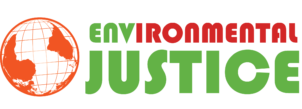
A five-year ERC Advanced Grant to analyze the Global Environmental Justice Movement was awarded in March 2016 to Joan Martinez-Alier, ICTA-UAB. The project started in June 2016. The team has been selected and work is in progress. This new website will add EnvJustice resources to the resource library build up during the EJOLT project. The first meeting of the advisory board and summer school will be in June 2017.
Three goals
The EnvJustice project will expand the Environmental Justice Atlas (EJAtlas), a worldwide inventory of ecological distribution conflicts. It will compile a vocabulary of environmental justice. It will also analyze the alliance between the Global Environmental Justice Movement and the Degrowth movement in Europe. The key question asked in the project: Is there a Global Movement for Environmental Justice helping to push society and economy towards environmental sustainability? EnvJustice will try to prove there is, through research on the many facets of this movement.
Implementation of the three goals
First, the team will add and analyze cases in a groundbreaking Environmental Justice Atlas (EJAtlas) (www.ejatlas.org), a worldwide inventory of ecological distribution conflicts compiled at the ICTA-UAB, still with uneven coverage. Researchers are updating and expanding the EJAtlas which was launched in March 2014 as part of the EJOLT project (www.ejolt.org). It is growing thematically and geographically, becoming a unique instrument to conduct comparative, statistical political ecology. The field of political ecology studies “ecological distribution conflicts” ultimately caused by the increase in social metabolism. The links between such socio-environmental conflicts and changes in the social metabolism will be explored. “Even a non-growing industrial economy would require new supplies of fossil fuels and other materials from the commodity extraction frontiers because energy is not recycled and materials are recycled only in part”, says Martinez Alier who adds that the economy is not circular, but entropic: “there are therefore many resource extraction and waste disposal conflicts, at different scales, such as the excessive amount of greenhouse gases”.
Research based on the EJAtlas will analyze the resistance movements born from such conflicts and the networks they form across borders in a Global Environmental Justice Movement. The project will try to provide answers to questions such as: Who are the social actors and victims in such conflicts, the forms of mobilization, the variables explaining the rates of “success” in creating new alternatives? In this regard, EnvJustice will work together with the project Acknowl-EJ led by Dr Leah Temper (2016-19) at ICTA-UAB and funded by the ISSC (www.worldsocialscience.org/activities/transformations/acknowl-ej/).
Second, EnvJustice shall expand the scope and deepen the analysis of the Vocabulary of the Movement for Environmental Justice, from its beginning in the United States in 1982 (with terms like environmental racism, popular epidemiology, sacrifice zones) to its deployment in many countries with new crosscutting concepts. In Paris in 2015 (at the 21st COP on Climate Change) there were claims for “Climate Justice” although the official response was “No Liability” for climate change. Meanwhile the Encyclical Laudato si recognised in paragraph 52 the existence of an Ecological Debt from North to South. These are only some of the many terms in the vocabulary of environmental justice. EnvJustice will investigate how different claims are expressed in Europe, India, China, Africa, Latin America, related to mining and fossil fuel extraction conflicts, biomass and water, waste disposal and transport conflicts. Expressions in reports, blogs, newspapers, judicial proceeedings, academic papers are inventoried but also slogans in demonstrations, songs and videos.
Third, EnvJustice will analyze (following in the steps of Sicco Mansholt and Nicholas Georgescu-Roegen) the elements for a possible alliance between the Global Environmental Justice movement and the smaller Degrowth (Décroissance, Post-Wachstum, “Prosperity without Growth”) movement in Europe. The project will run three summer schools on Degrowth and Environmental Justice.
EnvJustice is able to give contracts to 6 doctoral students / post-docs. By January 2017 the team has been selected and work is in progress on special issues of academic journals. Attendance to key conferences (ESEE, INSEE) is being planned for 2017.
The first meeting of the Advisory Board will be in the last week of June 2017.

The project ENVJUSTICE has received funding from the European Research Council (ERC) under the European Union’s Horizon 2020 research and innovation programme (grant agreement No. 695446)